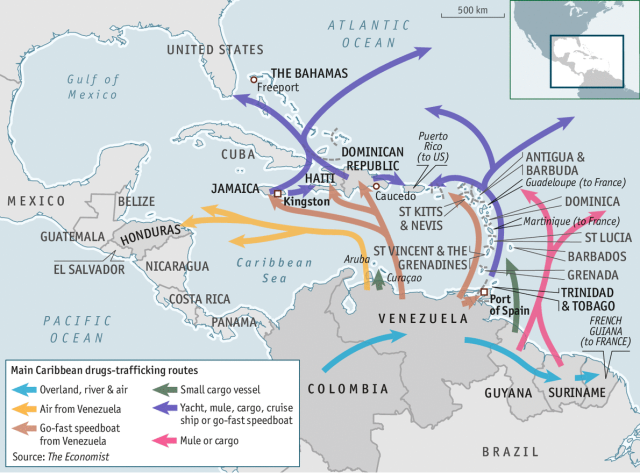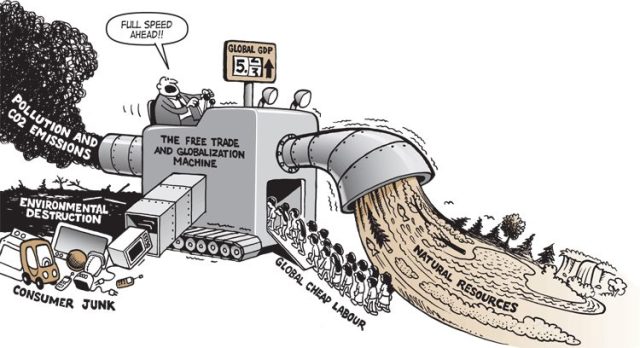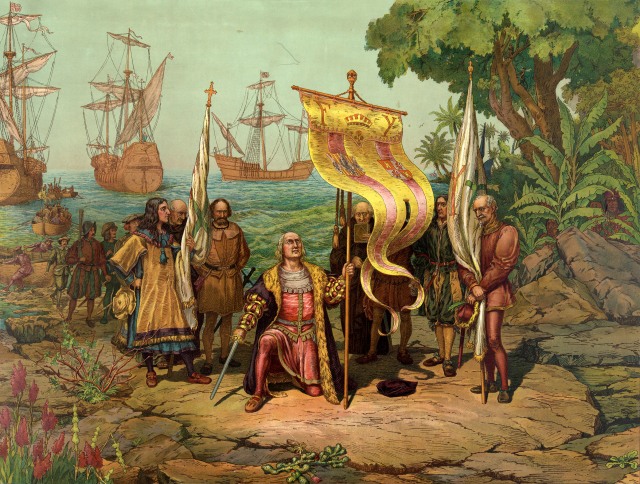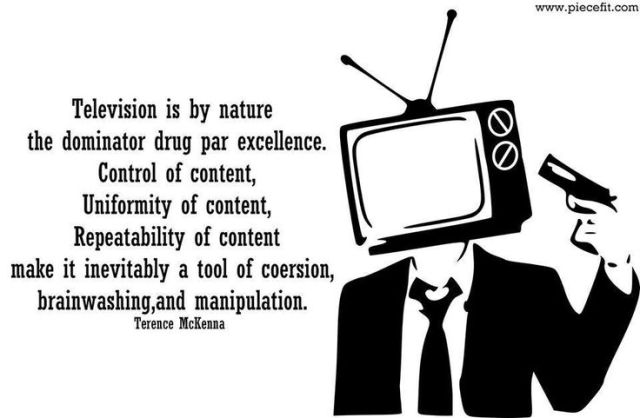Technology is a gift of God. After the gift of life it is perhaps the greatest of God’s gifts. It is the mother of civilizations, of arts and of sciences.
~Freeman Dyson
Globalization has already been impacting the economies and societies in the Caribbean, and with the rapid pace in technology its effects will intensify. Technological development is conceived as the main facilitator ad driving force of most of the globalization process. Firstly technology can be defined as the socialized knowledge of producing goods and services. We can describe the term technology with five important elements: production, knowledge, instruments, possession and change, technology as a socialized knowledge can be better conceived with these elements. Advances in technology are one of the main reasons that globalization has escalated in the past decade. In information and communication technology, innovations have become smaller in size, more efficient and often more affordable. In transport technology, vehicles have tended to become larger and faster, as well as becoming more environmentally friendly and cheaper to run. Whether for personal use or for business, technology has made the world seem a smaller place and assisted in the rise of globalization.
The effects on technological changes on the global economic structure are creating immense transformations in the way companies and nations organize production, trade goods, invest capital, and develop new products and processes. Sophisticated information technologies permit instantaneous communication among the far-flung operations of global enterprises. New materials are revolutionizing sectors as diverse as construction and communications. Advanced manufacturing technologies have altered long-standing patterns of productivity and employment. Improved air and sea transportation has greatly accelerated the worldwide flow of people and goods.
All this has both created and mandated greater interdependence among firms and nations. The rapid rate of innovation and the dynamics of technology flows mean that comparative advantage is short-lived. To maximize returns, arrangements such as transnational mergers and shared production agreements are sought to bring together partners with complementary interests and strengths. This permits both developed and developing countries to harness technology more efficiently, with the expectation of creating higher standards of living for all involved.
Rapid technological innovation and the creation of transnational organizations are driving the formation of a global economy that sometimes conflicts with nationalistic concerns about maintaining comparative advantage and competitiveness.
Developments in information and communication technology have changed our way of life, whether it is at home, at work, at school or at leisure. The internet and the development of digital technology (computer-based technology) in particular, have made the most significant impact in the field of information and communication technology in the past decade.
The internet is essentially a network of computers across the world which is linked through global telecommunications. The World Wide Web (www) is a collection of interconnected documents which are accessible using the internet. It enables people from almost anywhere in the world to access information on almost any topic from shopping to weather forecasts; and from research to downloading music and movies.
In addition to the internet, global media networks (corporations which include television and media companies with branches in multiple countries) also bring news and information about current events to people all over the globe. It is now possible for someone in Trinidad and Tobago to gain access to live programs via live stream. They also have access to viewing the latest fashion magazines in any country around the world, also even purchase items. In addition to the internet, mobile phones, voice mail, and text messaging allow instant contact across states and countries.
Digital technologies have opened the way towards global networks. Global networks are the networks in which all information and knowledge also the ideology necessary for the realization, maintenance and the reproduction of the system, basically the capitalist system. The term “New Economy” is the clearest explanation of how all these information, knowledge and ideology are in close relation to capitalism.
Capitalism is an economic system that emerged in Europe during the sixteenth and seventeenth centuries and was discussed quite a bit by sociologist Karl Marx. From a Marxist perspective, capitalism is organized around the concept of capital (the ownership and control of the means of production by those who employ workers to produce goods and services in exchange for wages). The fact that people depend on technology to dictate their lives shows clear similarities of the capitalist system.
The internet and especially e-commerce are the terms that are basically used for justifying the recent approach of techno-globalism. Techno-globalism can be summarized as the ideology which rationalizes globalism on technological grounds. The techno-globalists, most of them live in the Anglo-Saxon countries claim that technology makes globalism irresistible. Therefore, techno-globalists wishing to dismantle all worldwide barriers to economic or technology flows, suggest a “liberal” global economic system on technologically improved infrastructure.
Technology has without doubt an impact on society. As a matter of fact, we experience this effect in our daily lives. It has an effect on the growth of the economy, our culture and our living standards. It is however important to note that the benefits are a double-edged sword with some being detrimental and other being beneficial. One should be very careful and get to know how the effects on society affect the business activities and operations.
Technology impacts on our daily lives. Our environments are all so full of technology to the point that most of the time we take it for granted and never actually notice the level of impact that it has on us until when we have no telephone, transport, water or electricity. Advancements in technology have greatly increased our living standards. Despite the fact that we are currently experiencing very high inflation rates and the rates of unemployment are very high, generally, people are feeding better, are dressing better and are as a matter of fact living more comfortable lives.
Technology also has a great impact on all the fundamental aspects of all our cultures including laws and how they are enforced, language, art, health care, mobility, education and religion. For instance the great technological improvements in health care have given a chance to doctors to treat their patients in an environment that is virtual through the use of mediums such as video conferencing which has also greatly benefited the legal environment as it allows the judges to still listen to the cases of hard core criminals who cannot be allowed to get into the court rooms due to security reasons.
With every advancement that is made in the technological world, creative destruction results. For example, television impacts negatively on the movies and synthetic fibers impact the cotton fibers negatively. The coming in of new types of technology also results in a negative impact on the growth of the economy at times; television and mobile devices at times consumes all the productive hours that a man has in a day. Every new form of technology gets into the market together with long term consequences that are most of the time not foreseeable.
In conclusion, despite the fact that we cannot really ignore that there are a number of ways in which technology negatively impacts our society, for the better part it has greatly helped to make out lives better. Technology has greatly helped us to become more efficient thus increasing our productivity. It has also helped us a great deal to be able to save on many resources such as time and money and these are great benefits that cannot be ignored. It has also worked well in bringing unity into the world by turning it into a global village which has in turn helped people to more easily overcome their cultural, racial and continental barriers.

















